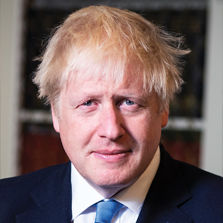
British international business travelers were introduced to a new game in summer 2020: Quarantine Bingo. Would the country they planned to visit be removed from the list of exemptions from the U.K.'s 14-day quarantine requirement before they made it back home?
Prime Minister Boris Johnson's chaotic approach to controlling entry to the U.K. during the coronavirus crisis proved unpopular with the travel industry from the outset. The U.K. government introduced the quarantine from June 8, and critics accused Johnson of shutting the stable after the horse had bolted, suggesting a border closure at the outset of the pandemic would have made much more sense. They also questioned why exemptions were to be made for France only and for non-air passengers. Both were dropped.
By the beginning of July, the U.K. did exempt 59 countries deemed low-risk, but at the end of that month the U.K. axed Spain from its exemption list with six hours' notice. Quarantine Bingo was underway, with travelers rushing to get home to avoid self-isolation. The following week Luxembourg got the chop at short notice. The week after that came Andorra, then the Bahamas and Belgium, and so on.
Faced with such chronic uncertainty, Business Travel Association chief executive Clive Wratten, called the process "a mortal blow for our industry." Travel companies and associations also expressed frustration at no sector-specific financial aid to compensate, plus resistance to any initiatives for virus testing of passengers.
The U.K. at least is starting early on vaccination, which should help business travel recover in 2021, only to face another feature of Johnson's leadership: Brexit. Once the transition period ends on Dec. 31, U.K. travelers will need six months on their passport when visiting the European Union, will have no automatic right to stay beyond three months, likely will have to stand in immigration queues with other non-EU citizens, and in many cases will need an International Driving Permit if they use a car.